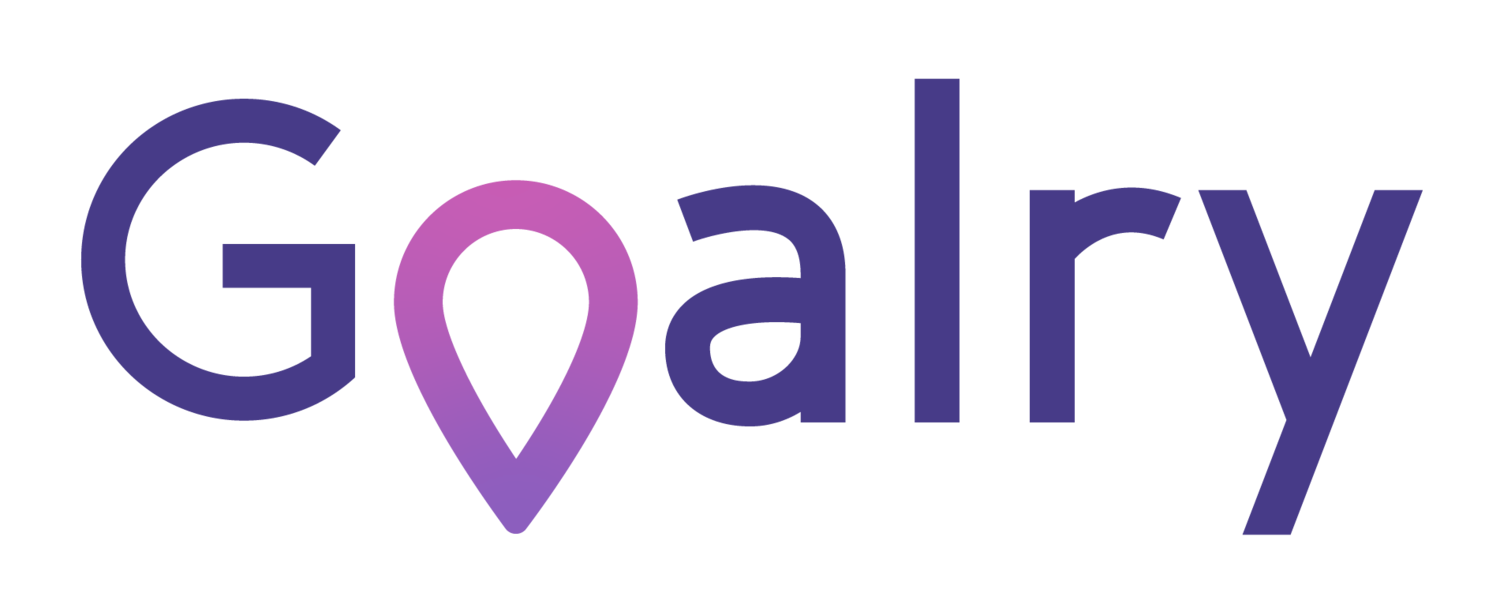Let’s Talk About Goals
There used to be a popular advice columnist named Ann Landers. (Her twin sister wrote “Dear Abby” back in the day.) In one legendary exchange, a reader wrote with a conundrum about going back to school. They clearly wanted to return and pursue the degree they were unable to chase decades before, but worried about their age. “I’m already 39. It would take at least six years for me to finish and by the time I graduated I’d be 45!” Ann’s response was classic: “How old will you be in six years if you don’t go back?”
You may have noticed that everywhere you go on Goalry, we’re talking about how every decision you make about one part of your financial world impacts every other part of that world. How you organize your household budget (and how faithfully you maintain it) impacts your ability to save, invest, and get out of debt. How you manage your debt – from credit cards to truck payments to mortgage refinancing – impacts your ability to invest now and retire later. Better information about investing in real estate, determining the precise value of a home or other property, or making smarter insurance choices – they all impact your quality of life now and your capacity for paying your kids’ tuition or providing that dream wedding you never had yourself later.
Each financial realm has its own terminology and its own rules. Paying off student loans involves different rules and dynamics than managing home equity loans. Life insurance doesn’t work quite the same as health insurance or car insurance, although it has things in common with both. Bankruptcy works differently than debt consolidation and medical debt relief is in many ways quite different than most forms of tax debt help. At the same time, they all involve the same dollars and sense. Your dollars and sense.
Every choice, every obligation, every twist of fate – each one either improves your financial condition or harms it. It raises your credit score or lowers it. Over time, they collectively make it easier to do the things you like and take care of the people you love, or they make it harder. Whether it’s real estate, debt management, taxes, investments, insurance, loans, budgets, or other forms of wealth management, they’re all opportunities for us to get a little closer to our long-term goals or slide a little further away. For some of us, they’re a chance to establish those goals in the first place.
Is It Really That Important To Get Out Of Debt?
How To Get Out Of Debt?
Revising Your Debt Payoff Planner
Organizing Your Debt
It’s not just about writing some checks and then hoping for the best. It takes time and planning.
The good news is that while we can’t necessarily make it all easy, you certainly don’t have to figure it all out alone. Helping people sort out their short-term crises and long-term goals is what we do.
Support And Resources
If the issue is business debt, or college student debt, or you need tax debt help – that’s why we’re here. If you’re struggling to find medical debt relief or looking for ways to avoid bankruptcy – we can talk you through some options. If you decide to pursue debt consolidation, we can help you find a reputable online lender which matches your needs. If you just need to run some numbers and figure out how long it would take to reach certain goals, we probably have some tools for that as well.
What we won’t do is promise you magical solutions or quick fixes, or regale you with tales of people just like you who simply joined this program or attended that lecture series and all of their debt magically disappeared. You may recall the old proverb about things that look or sound too good to be true… We’d rather you be happy with us in six months and even happier with us in six years. It takes time to get out of credit card debt, just like it takes time to get physically healthy or earn that professional accreditation. It takes time to pay down small business debt or raise your credit score enough to secure lower interest credit cards and better loan terms.
It’s also worth it.
In addition to our extensive libraries on real world financial topics, we offer a number of online tools and the opportunity to connect to lenders or other professionals based on your specific goals and at your request. We’re also about to unveil a number of apps designed to support your efforts to get out of debt. Technology allows a level of personalization and convenience inconceivable even a generation ago, so we’ve taken everything we’ve learned from the first generation of financial management tools and supports and re-imagined the ways in which they could be powerful and flexible enough to meet you specific needs while remaining as intuitive and easy-to-use as the mp3 player or camera feature in the next row of icon.
Imagine categorizing your spending in real time with a few clicks or swipes. No more wrestling with receipts or line items on some statement, trying to figure out where you could have possibly spent $60.11 that late on a Sunday. Imagine a practical debt tracker alerting you when there are changes to your accounts or you’re approaching spending limits you’ve set yourself to help you stay on budget. Imagine if I could quickly pull up information from major lenders and online institutions alike and compare options to consolidate my debt as easily as I clear the bars on my fitness tracker or get driving directions to the coffee shop.
We’ve studied the research. We’ve also read your emails. One of the most common reasons we don’t take more effective control of our finances is simply that it seems like it takes so much time and it’s all so complicated. It doesn’t have to be – at least not so much that you can’t go about your business quite productively once you’ve set your priorities. Imagine the same technology able to search the world’s databases and organize puppy videos used to help you meet your debt free living goals. Imagine a debt tracker that lets you make better choices while you’re living your life – not instead of living it.






